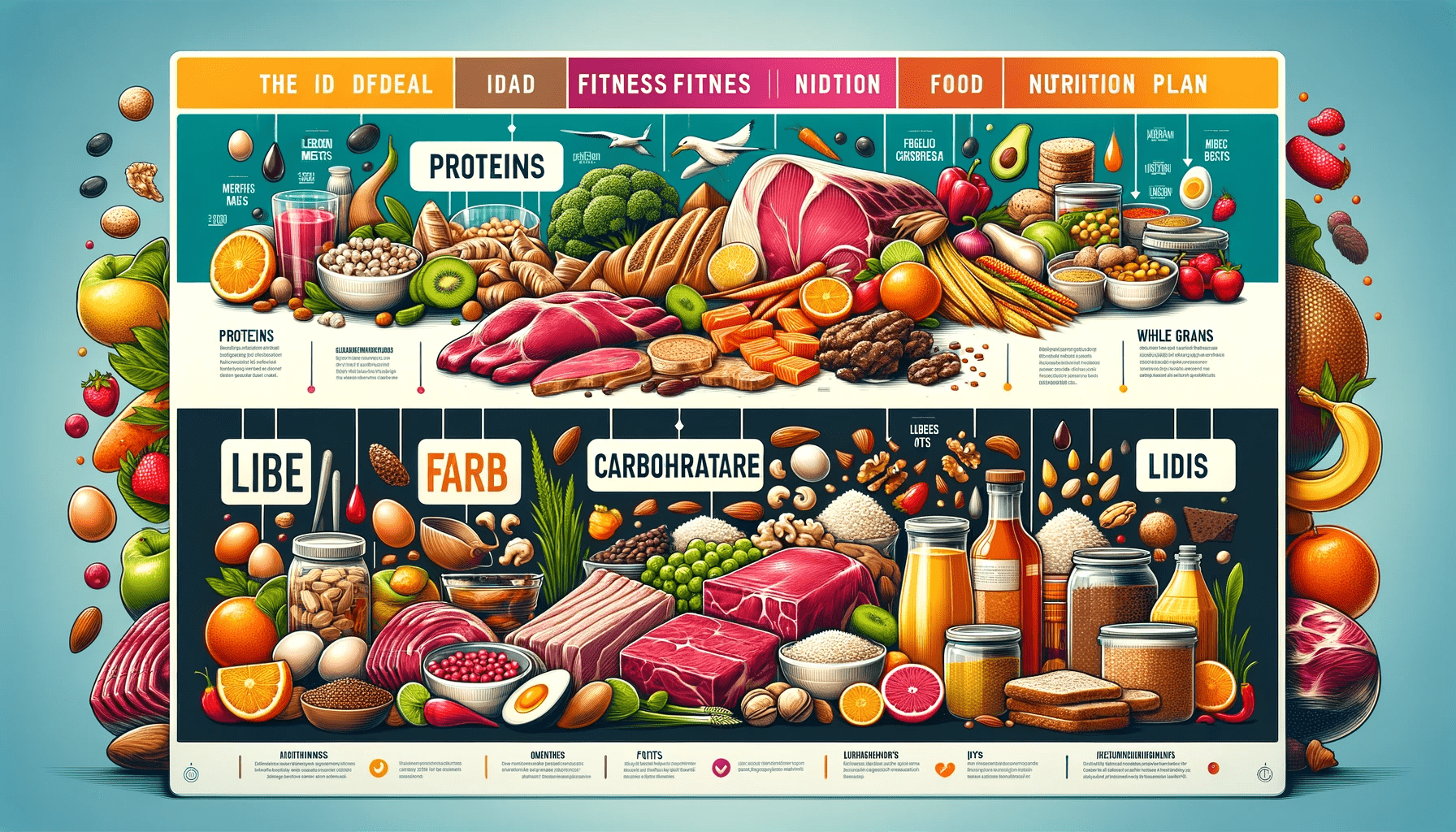Understanding the role of macronutrients - proteins, carbohydrates, and lipids (fats) - is essential in creating an effective fitness nutrition plan. Each macronutrient plays a unique role in supporting physical activity, recovery, and overall health. This article delves into how to balance these macronutrients to optimize your fitness regimen, backed by scientific evidence.
1. The Role of Proteins in Fitness
Proteins are the building blocks of muscles and are crucial for repair, growth, and maintenance of muscle tissue.
- Muscle Repair and Growth: A study in "Nutrients" highlights the importance of protein for muscle synthesis, particularly after exercise【1】.
- Protein Sources: Lean meats, fish, dairy, legumes, and plant-based alternatives like tofu are excellent protein sources.
- Recommended Intake: The "Journal of the International Society of Sports Nutrition" suggests a protein intake of 1.2 to 2.0 grams per kilogram of body weight for active individuals【2】.
2. Carbohydrates for Energy
Carbohydrates are the primary energy source for both high-intensity and endurance exercises.
- Fueling Workouts: According to "Sports Medicine", carbohydrates are crucial for fueling exercise and replenishing glycogen stores in muscles【3】.
- Types of Carbohydrates: It's important to focus on complex carbohydrates like whole grains, fruits, and vegetables, which provide sustained energy.
3. The Importance of Lipids in Fitness
Lipids (fats) are essential for numerous bodily functions, including hormone production and providing a source of energy, particularly for prolonged, moderate-intensity exercise.
- Healthy Fats: Sources of healthy fats include avocados, nuts, seeds, and fatty fish. These fats are not only energy-rich but also help in the absorption of fat-soluble vitamins, as per "Nutrients"【4】.
4. Balancing Macronutrients for Optimal Fitness
The key to an effective fitness nutrition plan is to balance these macronutrients based on individual goals, activity levels, and preferences.
- Personalization: The ratios of proteins, carbs, and lipids can vary. For example, endurance athletes may require more carbohydrates, while strength athletes might focus more on protein.
5. Hydration and Micronutrients
Besides macronutrients, hydration and micronutrients play a crucial role in fitness nutrition.
- Hydration: Adequate water intake is essential for optimal physical performance and recovery.
- Vitamins and Minerals: Micronutrients, including vitamins and minerals, support overall health and exercise performance. Iron, calcium, magnesium, and B vitamins are particularly important for active individuals.
6. Timing of Nutrient Intake
The timing of nutrient intake can influence workout effectiveness and recovery.
- Pre- and Post-Workout Nutrition: Consuming carbohydrates and protein before and after workouts can optimize performance and recovery, as suggested by "Journal of the International Society of Sports Nutrition"【5】.
7. Considerations for Special Diets
Individuals on special diets, including vegetarian or vegan diets, need to ensure they are obtaining a balanced intake of all macronutrients, particularly protein.
- Plant-Based Protein Sources: Legumes, soy products, and quinoa are excellent plant-based protein sources.
Conclusion
Creating an optimal fitness nutrition plan requires understanding and balancing proteins, carbohydrates, and lipids to support your workout goals. Tailoring this balance to individual needs and preferences is key to maximizing fitness results and overall health.
References
- Pasiakos S.M., McLellan T.M., Lieberman H.R. (2015). "The effects of protein supplements on muscle mass, strength, and aerobic and anaerobic power in healthy adults: a systematic review." Nutrients.
- Jäger R., Kerksick C.M., Campbell B.I., et al. (2017). "International Society of Sports Nutrition Position Stand: protein and exercise." Journal of the International Society of Sports Nutrition.
- Hawley J.A., Leckey J.J. (2015). "Carbohydrate Dependence During Prolonged, Intense Endurance Exercise." Sports Medicine.
- Simopoulos A.P. (2016). "An Increase in the Omega-6/Omega-3 Fatty Acid Ratio Increases the Risk for Obesity." Nutrients.
- Kerksick C.M., Arent S., Schoenfeld B.J., et al. (2017). "International Society of Sports Nutrition position stand: nutrient timing." Journal of the International Society of Sports Nutrition.
Discover fitness supplements on the Amazon store : link

Leave a comment